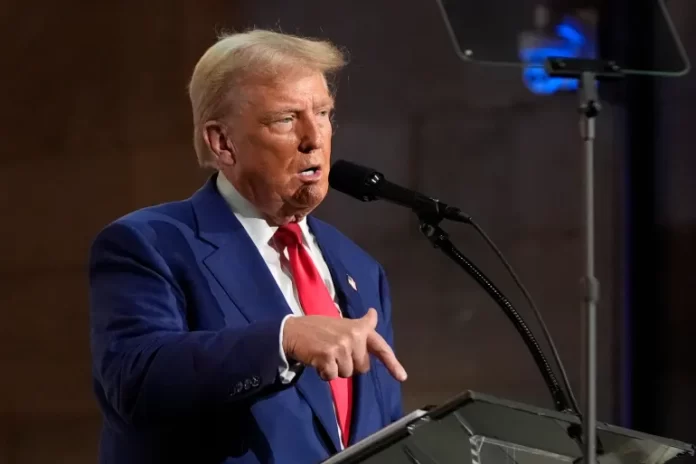Nigerians living abroad have condemned U.S. President Donald Trump’s recent attempt to end birthright citizenship, arguing that an executive order alone cannot alter a constitutional provision.
They believe the legality of the move will ultimately be determined by the U.S. courts and Supreme Court.
The executive order, signed by Trump shortly after taking office, seeks to halt the practice of granting U.S. citizenship to children born on American soil to parents who are unlawfully or temporarily in the country.
Set to take effect 30 days after signing, the order also stipulates that the federal government will no longer issue citizenship documents for children born under these circumstances.
This move has already sparked legal action, with 22 Democratic states and civil rights groups filing lawsuits to block the order.
While the legal challenges unfold, the executive order has triggered strong reactions from the Nigerian diaspora.
Ralu Ajekwe, a Nigerian residing in the U.S., expressed concern over the legality of the order, questioning whether an executive action can amend constitutional provisions.
He stressed that the American public’s opinion and the legal implications must be considered before moving forward with such a drastic change.
A legal practitioner based in Canada, who chose to remain anonymous, dismissed the order as “showmanship,” pointing out that there are legal limits to executive orders.
He argued that Trump’s proposal contradicts the 14th Amendment, which grants citizenship to all persons born in the U.S. subject to its jurisdiction. The legal community, he noted, will likely challenge the order in court.
Peter Obiora, an online editor at InvestAdvocate living in the U.S., stated that Trump’s plan could only be realized through a constitutional amendment, which would require significant legal efforts.
He predicted that the executive order would face numerous lawsuits, and that it would be almost impossible for Trump to end birthright citizenship without the backing of a constitutional amendment.
Johnpaul Nwafidelie, a resident of Canada, explained that Trump’s move is part of a broader strategy to control immigration to the U.S.
He noted that Canada is also considering a similar policy, currently under discussion in parliament, and advised Nigerians seeking dual citizenship for their children to follow proper legal channels.
As the debate continues, the future of Trump’s executive order remains uncertain, with the ultimate decision likely to rest in the hands of the U.S. judiciary.



